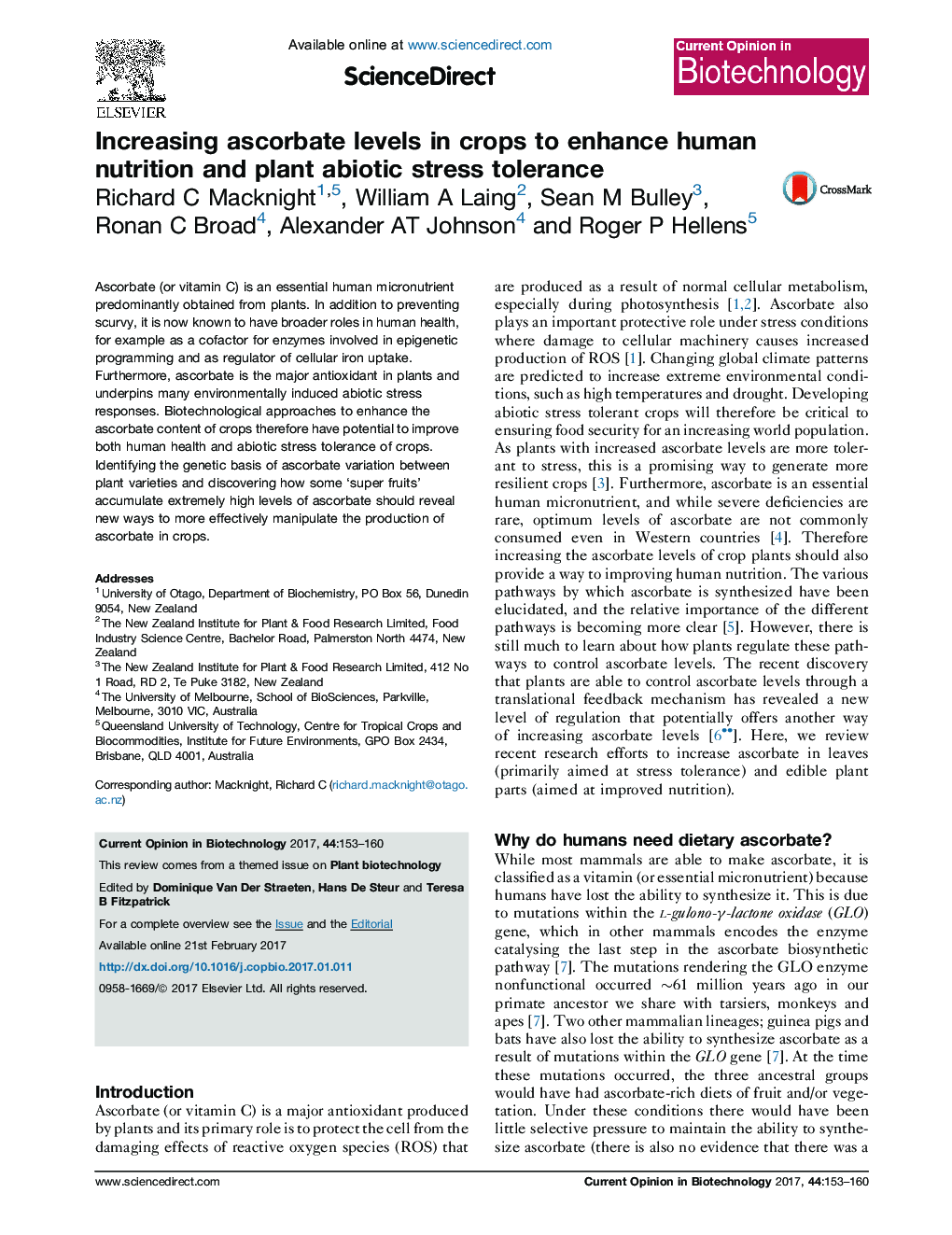| Article ID | Journal | Published Year | Pages | File Type |
|---|---|---|---|---|
| 6451575 | Current Opinion in Biotechnology | 2017 | 8 Pages |
â¢Developing crops with higher ascorbate levels is needed to enhance human nutrition.â¢Dietary ascorbate (vitamin C) influences epigenetics and enhances iron uptake.â¢'Super fruits' with extreme ascorbate levels might provide new biotech approaches.â¢Crop tolerance to stress can be enhanced by moderate increases in ascorbate.
Ascorbate (or vitamin C) is an essential human micronutrient predominantly obtained from plants. In addition to preventing scurvy, it is now known to have broader roles in human health, for example as a cofactor for enzymes involved in epigenetic programming and as regulator of cellular iron uptake. Furthermore, ascorbate is the major antioxidant in plants and underpins many environmentally induced abiotic stress responses. Biotechnological approaches to enhance the ascorbate content of crops therefore have potential to improve both human health and abiotic stress tolerance of crops. Identifying the genetic basis of ascorbate variation between plant varieties and discovering how some 'super fruits' accumulate extremely high levels of ascorbate should reveal new ways to more effectively manipulate the production of ascorbate in crops.
Graphical abstractDownload high-res image (155KB)Download full-size image
